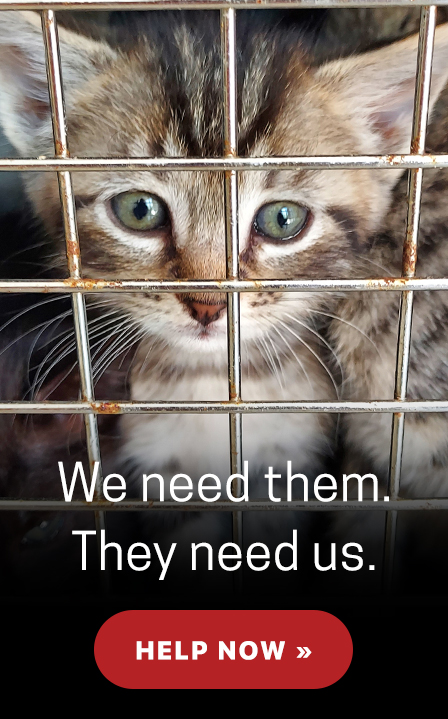May 25, 2021 — American Humane, the country’s first national humane organization, is issuing key tips to help you keep yourself, your family and your animals safe – before, during and after a storm, following the National Oceanic and Atmospheric Administration’s seasonal Atlantic hurricane forecast.
The Atlantic hurricane season runs from June 1 to Nov. 30, and NOAA’s forecast is predicting that 2021 will be an above-average season once again. The forecast calls for 13 to 20 total named storms, six to 10 hurricanes, and three to five major hurricanes (Category 3 or higher). This year’s announcement comes after a record-shattering 2020 season.
“Hurricanes continue to become more destructive and after last year’s deadly storms, many families were tragically separated from their beloved pets,” said Dr. Robin Ganzert, CEO and president of American Humane. “It’s imperative that you plan accordingly to protect your entire family – pets included. We hope the public will follow these tips from the American Humane rescue team and keep all your loved ones safe.”
Ahead of hurricane season, see these critical tips from American Humane:
Before the storm
- Microchip pets and/or put a tag on their collar with your name, current address and cellphone number.
- Tie down or anchor outside objects that might fly about and injure someone.
- Bring all pets inside and ensure you have emergency supplies – extra pet food, water and a carrier ready that is large enough for your pet to turn around and lie down comfortably.
- Review your evacuation plan and have at the ready a pet disaster preparedness kit including a pet carrier, First Aid supplies, leashes, bowls, sanitation materials, chew toys and food, meds and water (minimum three days’ worth, but ideally seven to 10 days’ worth).
- If your family must evacuate, take your pets with you and leave as early as you can. Remember to take your pet disaster preparedness kit.
During the storm…. if you cannot evacuate
- Choose a safe room for riding out the storm—an interior room without windows – and take your entire family there, including your pets.
- Stay with pets. If crated, they depend on you for food and water.
- Keep your emergency kit in that room with you (food, water, litter, meds).
- Know your pets’ hiding places. That is where they may run; keep them with you.
- Secure exits and cat doors so pets cannot escape into the storm.
- Do not tranquilize your pets. They will need their survival instincts should the storm require that.
After the storm
- Make sure the storm has fully passed before going outside and assess damages before allowing animals out.
- Keep dogs on a leash and cats in a carrier. Displaced objects and fallen trees can disorient pets and sharp debris could harm them.
- Give pets time to become re-oriented. Familiar scents and landmarks may be altered and cause a pet to become confused or lost.
- Keep animals away from downed power lines and water that may be contaminated.
- Uncertainty and change in the environment affect animals, too, presenting new stresses and dangers. Your pet’s behavior may change after a crisis, becoming more aggressive or self-protective. Be sensitive to these changes and keep more room between them, other animals, children or strangers. Animals need comforting, too. Comfort your pet with kind words and lots of pats or hugs. If possible, provide a safe and quiet environment, even if it is not their own home.
ABOUT AMERICAN HUMANE
American Humane is the country’s first national humane organization. Founded in 1877, American Humane is committed to ensuring the safety, welfare and well-being of animals, and our leadership programs are first to serve in promoting and nurturing the bonds between animals and people. For more information or to support our work, please visit www.americanhumane.org and follow us on Facebook, Twitter and Instagram.

